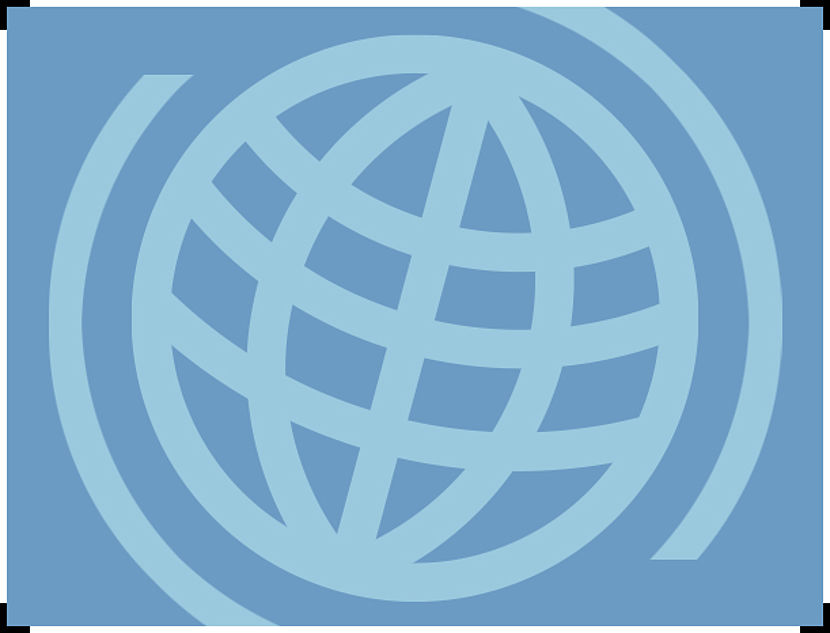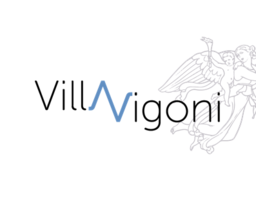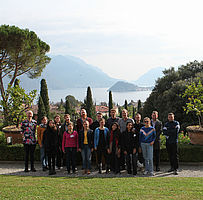Umwelt, Klima, Energie: Gesellschaften und ihre ökologischen Herausforderungen
Verantwortlich: Benjamin Beuerle, Isabelle Desportes, Judith Nora Hardt
Co-Organisation: Bastien Fond, Frédéric Graber
Der Forschungsschwerpunkt befasst sich mit sozio-ökologischen Transformationsprozessen aus einer transdisziplinären Perspektive. Im Zentrum stehen die Akteure, Gegenstände und Dynamiken von Umweltpolitik und Klimagovernance, die Analyse, Diskussion und Ausarbeitung von Zukunftsszenarien sowie die Gestaltung und Wahrnehmung von Umwelt und Klima als gesellschaftspolitische Probleme.
Der Forschungsschwerpunkt „Umwelt, Klima, Energie“ bringt Forscher*innen zusammen, die sich mit ökologischen Fragen beschäftigen. Er bietet einen Reflexionsraum, der Sozial- und Geisteswissenschaften in Dialog bringt und einen offenen Austausch mit den Naturwissenschaften fördert. Hierdurch werden neue interdisziplinäre Ansätze entwickelt, die in einem Kontext massiver ökologischer Herausforderungen auf einen praxisorientierten Output zielen.
Das Spektrum der Themen und Fragestellungen reicht von klimapolitischen Ansätzen über soziotechnische Aspekte und Umweltgerechtigsfragen bis zur Analyse politischer Vorgaben für eine sozio-ökologische Transformation unserer Gesellschaften. Ebenso wird die Bedeutung natürlicher Ressourcen und des Klimawandels für Krieg, Frieden und geopolitische Verschiebungen reflektiert. Überdies werden philosophische Perspektiven zur Umweltethik sowie Debatten um das „Anthropozän“ als neues geologisches Zeitalter behandelt.
Die im Forschungsschwerpunkt diskutierten Arbeiten begreifen die umwelt- und klimapolitischen Herausforderungen nicht nur als eine technik- oder naturwissenschaftliche Aufgabe. Stattdessen steht der Forschungsschwerpunkt für einen holistischen Zugang, der die Gesellschaft ins Zentrum stellt und die Folgen menschlichen Handels auf die Umwelt untersucht. Dabei gilt es, unsere vergangenen und gegenwärtigen Beziehungen zur Natur zu analysieren, um besser zu verstehen, wie verschiedene Zivilisationen und Kulturen im Laufe der Zeit mit Umweltproblemen umgegangen sind. Im Hinblick darauf interessiert sich der Forschungsschwerpunkt unter anderem für: klimapolitische Akteure, Wissensproduktion und Entscheidungsprozesse; die Geschichte von Energiezukünften; die Logik ökologischer Bewegungen; die Verflechtungen von Macht- und Sicherheitspolitik mit Umweltpolitik; und die Entwicklung umweltphilosophischer Fragen.
Exkursion Stadtnaturausflug
Exkursion mit Séverine Marguin/ Jamie-Scott Baxter (TU Berlin) : ”Refiguring Botanical Gardens in the Anthropocene” Ort: Botanischer Garten (Berlin)
Imaginaries of Socio-Ecological Transformation

7.-10. April 2024 - Workshop
Deutsch-französisches Netzwerk für Klimawandelforschung in den Sozial- und Geisteswissenschaften
Sovereignty and Resilience: The Politics of Climate Change in the South Pacific
22. Januar 2025 - Forschungsseminar
Eric Wittersheim (CMB / CNRS)
Kommentar : David Fopp (CMB)
Social-ecological transformation conflicts and the importance of economic growth
16. Dezember 2024 - Sommerschule
Matthias Schmelzer (Europa universität Flensburg)
Kommentar: Assistant Prof. Dr. Miriam Meissner, Maastricht University
Nuclear heritage: Uranbergbau in Australien, Afrika und Ostdeutschland
04. Dezember 2024 - Vortrag
Astrid Kirchhof (CMB / Leopold-Franzens-Universität) & Arne Cypionka (KIT)
Kommentar: Christian von Hirschhausen
Locusts of Power: Borders, Empire, and Environment in the Modern Middle East
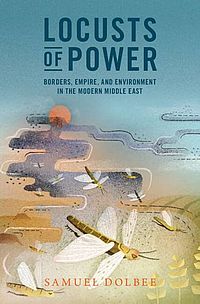
28. November 2024 - Buchvorstellung
Samuel Dolbee (Vanderbilt University, Tennessee)
In Kooperation mit III. Schwerpunkte
Kommentar : Nazan Maksudyan (CMB)
Abstract: In this highly original environmental history, Samuel Dolbee sheds new light on borders and state formation by following locusts and revealing how they shaped both the environment and people's imaginations from the late Ottoman Empire to the Second World War. Drawing on a wide range of archival research in multiple languages, Dolbee details environmental, political, and spatial transformations in the region's history by tracing the movements of locusts and their intimate relationship to people in motion, including Arab and Kurdish nomads, Armenian deportees, and Assyrian refugees, as well as states of the region. With locusts and moving people at center stage, surprising continuities and ruptures appear in the Jazira, the borderlands of today's Iraq, Syria, and Turkey. Transcending approaches focused on the collapse of the Ottoman Empire or the creation of nation states, Dolbee provides a new perspective on the modern Middle East grounded in environmental change, state violence, and popular resistance.
Sensibiliser par les ateliers. Regard sur différents dispositifs d'éducation au climat
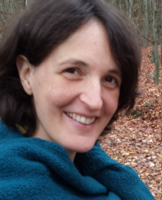
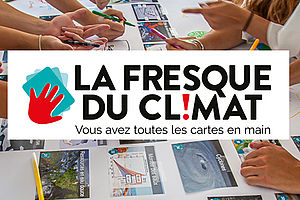
15. November 2024 - Projektvorstellung
Eine Veranstaltung der Klimaschutz-AG
Vortrag und Diskussion mit Coline Ruwet (Brüssel / Louvain)
Bio : Docteure en sociologie de la Chaire Hoover d’éthique économique et sociale de l’Université de Louvain (UCLouvain, Belgique), Coline Ruwet est Professeure Associée à l’ICHEC Brussels Management School. Ses travaux portent sur la gouvernance et le déploiement de la transition socio-écologique, en particulier ses dimensions subjectives et culturelles. Ses publications récentes portent notamment sur la soutenabilité sous le prisme de notre rapport au temps. Au sein d’équipes interdisciplinaires, elle a également coordonné des projets portant sur l’économie de la fonctionnalité et les pédagogies de la transition.
Extracting the Future: Lithium Imaginaries in an Era of Energy Transition

06. November 2024 - Buchvorstellung
Mark Goodale
Par delà Descola et Latour. Etude d'une controverse feutrée
10. Juli 2024 -Forschungsseminar
In Kooperation min FSP IV
Konferenz von Valentin Denis (EHESS, CMB)
Kommentar : Cannelle Gignoux (Université Paris 8, CMB)
Konsum und Habitus - zur Genealogie eines Konsumtionsmodells bürgerlicher Freiheit im 19. Jahrhundert
26. Juni 2024 - Vortrag
Dirk Schuck (CMB / Uni. Erfurt)
Kommentar: Marius Bickhardt (Sciences Po Paris/ CMB)
Towards a Commons of Urban Microclimates: Thermal Communities in Berlin
19. Juni 2024 - Vortrag
Noa Levin (CMB / Università della Svizzera italiana)
Kommentar: Ignacio Farías (Professor für Stadtanthropologie)
Bevölkerung, Natur, Kapital: Zu den Theorien von T. R. Malthus, K. Marx und ihren Epigonen
05. Juni 2024 - Vortrag
In Kooperation mit IV. Schwerpunkt
Marius Birckhardt (CMB / Science Po)
Kommentar : Susanne Schultz (Goethe Universität Frankfurt am Main)
Building Support for Climate Policy
08. Mai 2024 - Vortrag
Linus Mattauch (Technische Universität Berlin)
Kommentar: Antonin Pottier (EHESS, CMB)
Inutilité publique. Histoire d ́une culture politique française (éditions Amsterdam, 2022)
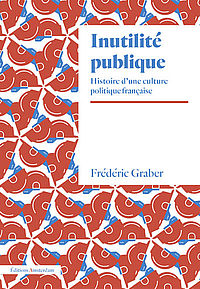
17. April 2024 - Buchvorstellung
„Inutilité Publique“ ( F.Graber, 2022, Editions Amsterdam) présenté par l'auteur, Frédéric Graber (CNRS/CMB)
In Kooperation mit I. Schwerpunkt
Les grands projets d’aménagement sont une cible privilégiée des mouvements écologistes. Dénoncés comme « inutiles et imposés », ces projets font l’objet de multiples résistances. Pourtant, la notion d’utilité publique est au cœur de leur légitimation par les pouvoirs publics français. Car aux yeux de l’administration, l’utilité publique ne renvoie pas à l’idée générale de bien commun, c’est un principe au nom duquel il est juridiquement possible de transformer l’état du monde, en sacrifiant certaines populations et environnements. La conformité ou non d’un projet à ce principe résulte d’une procédure administrative ancienne et méconnue, l’enquête publique, mise en scène par excellence du consentement de tous.
Multiple Crises. Covid-19 and the Entanglements of Public Health, Security and Ecology in Europe
12. April 2024 - Abschlusskonferenz
Gabriel Bartl (CMB)
Judith Nora-Hardt (CMB)
The research project "Multiple Crises. Covid-19 and the Entanglements of Public Health, Security and Ecology in Europe" was funded by the German Federal Ministry of Education and Research (BMBF). Its aim was to explore the entanglements and interplays between various crisis phenomena, with a special focus on the Covid-19 pandemic and climate change.
Das Verbotstabu - Hindernis für eine Nachhaltigkeitstransformation
07. Februar 2024 - Forschungsseminar
Philipp Lepenies (FU - Berlin)
Kommentar: Ulrike Zeigermann (Universität Würzburg/ Centre Marc Bloch)
Moving Offshore: discussing French wind power acceleration policy
24. Januar 2024 - Vortrag
Olivier Labussière (CNRS)
Alain Nadaï (CNRS / CIRED)
Kommentar: Jörg Radtke
The Wars of the Colorado Potato Beetle in 20th Century Europe
13 Dezember 2023 - Conférence
Depuis la découverte des premiers foyers de doryphores près de Bordeaux en 1922 jusqu’à leur dispersion à travers l’Union soviétique à la fin de la guerre froide,
Ideas and Prospects for Cooperation: Towards a French-German climate change research network in social sciences and humanities

4 - 5 Dezember 2023 - Perpektivworkshop II
Organized by the Centre Marc Bloch and the Climate Change Center Berlin-Brandenburg
David Fopp (CMB / Humboldt Uiniversität Berlin)
Antonin Pottier (EHESS)
Mit der Unterstützung von :
- Benjamin Beuerle (CMB)
- Léna Berteau (CMB)
Climate politics and activism - ways to a just zero-emission-society in Berlin, Paris and Kyiv
24 November 2023 - Workshop
The current wars and conflicts are justifiably attracting a lot of attention, but threaten to push the climate crisis into the background. How can science and climate activism in the three metropolitan regions mutually support each other in order to move politics towards compliance with the Paris Agreement in the current very difficult political environment? The workshop explores different ideas how to think about transforming our three metropolitan-regions in a just way.
Inclusive transformation: How can inclusive just cooperations look like and how can they be organized in the future?
Common ground: Is it possible for us to find a common ground and common principles for a set of values and action methods for the transformation needed so that there could be a European movement of researchers, activists and practitioners taking stance for a sustainable society against the status quo?
Future collaboration: Looking back and forward - How could we work together in the future building one strong European force for change built upon the inclusive principles?
The workshop is a cooperation of the Centre Marc Bloch and the Climate Change Center Berlin-Brandenburg.
Organized by:
Dr. David Fopp
Sciences participatives - Histoires de nature - Natur der Dinge - Changing Natures
08. November 2023 - Forschungsseminar
Aurélia Desplain (Museum National d'Histoire Naturelle)
Elisabeth Heyne (Museum für Naturkunde)
Interne Werkstattsitzung
06 November 2023
Rethinking Governance in Times of Multiple Crises
16 -18 Oktober 2023 - Workshop
We live in times of multiple crises. Governance strategies for crisis response, especially in terms of prevention and preparedness, are confronted with cascading and intertwined processes resulting in extensive delimitations and interactions between social, political and economic dynamics. Especially for the cases of climate change and the Covid-19 pandemic the governance of multiple crises has to cope with high degrees of urgency, uncertainty and complexity. This workshop aims to critically rethink governance in times of multiple crises by assessing crises responses of political decision makers, scientific experts and society in the context of climate change and pandemics. It invites theoretical and empirical research contributions that focus on one of the two crisis phenomena.
The PhD-Workshop is organized within the framework of the research project “Multiple Crises. Covid-19 and the Entanglements of Public Health, Security and Ecology in Europe” – funded by the German Ministry for Education and Research (BMBF) – in cooperation with Sciences Po, Paris. It will bring together scholars from different academic traditions in an interdisciplinary and interactive work environment. During a three-day event, the highlighted research axes will structure the exchange on theoretical, conceptual and methodological approaches to researching multiple crises. In the beautiful environment of the Villa Vigoni at the Lago di Como, this coming together will be enriched by a trilateral roundtable and other input sessions in collaboration with Prof. Dr. Frédéric Keck (CNRS/EHESS), Prof. Elena Esposito (University of Bielefeld & University of Bologna), Jun. Prof. Ulrike Zeigermann (University of Würzburg), Prof. Dr. Jay Rowell (Centre Marc Bloch), Dr. Carola Klöck (Sciences Po, Paris) and Dr. habil. Frédéric Graber (CNRS/EHESS). Other goals of the workshop are to provide a space for networking and for developing collaborative publication projects.
Organized by:
Gabriel Bartl, Judith Hardt
International Perspectives on Climate and Biodiversity Crises: Historical evolutions, current realities, and future Pathways for socio-ecological transformation
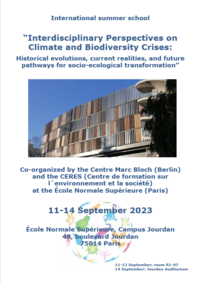
11 - 14 September 2023 - International Summer School
Organized by:
Benjamin Beuerle (Centre Marc Bloch), Claire Bouillot (CERES/ CEA), Marine Fauche (CERES/ University of Montpellier), Marc Fleurbaey (CERES/ Paris School of Economics), Bastien Fond (Centre Marc Bloch/ University of Caen), David Fopp (Centre Marc Bloch), Corinne Robert (CERES/ INRAE)
With the help of :
Chloé Risbourque (Centre Marc Bloch), Valentin Denis (Centre Marc Bloch/ ENS), Camille Desrayaud (Centre Marc Bloch/ Hertie School of Governance)
The Summer School has been rendered possible by the generous support of
The École Normale Supérieure
The Franco-German University
Lecture with Kohei Saito : Marx in the Anthropocene
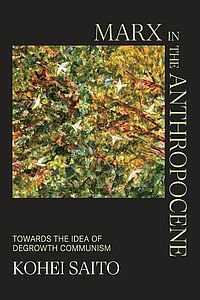
05 September 2023 - Book Presentation
Lecture of the book Marx in the Anthropocene with the author - Kohei Saito.
Conversation with Cannelle Gignoux and Marius Bickhardt.
« In the wake of the publication of the German translation of his bestseller 'Capital in the Anthropocene', we are pleased to welcome the Japanese philosopher Kohei Saito for talk about his academic book 'Marx in the Anthropocene. Towards the Idea of Degrowth Communism' (Cambridge University Press 2023). Saito will give a presentation on chapter four entitled 'Monism and the Non-identity of Nature', where he engages critically with a wide range of environmental scholarship in the fields of ecological marxism (J. B. Foster, J. Moore, A. Malm, A. Hornborg), marxist geography (D. Harvey, N. Smith), ecosocialism (K. Soper), feminism (S. Barca) and history (D. Chakrabarty). Saito's thesis is that « methodological dualism turns out to be indispensable to any critical theory of nature in the Anthropocene ». Presentation : 45min, Discussion: 1h15, Moderation : Cannelle Gignoux & Marius Bickhardt ».
Climate justice and the North-South divide: the impact of climate change on health in African countries
03. Juli 2023 - Podiumsdiskussion
In Kooperation mit der französischen Botschaft
Ort : Auditorium der Botschaft
Climate Change & Security: From Multiple Practice(s) to Reconceptualising Paradigm(s)
29. Juni 2023 - Workshop
Organisiert von :
- Judith Nora-Hardt (CMB)
- Dhanasree Jayaram (Manipal Academy of higher Education)
Climate Change & Security: Practices, Confrontations and Futures
20. Juni 2023 - Podiumsdiskussion
In Kooperation mit der französischen Botschaft
Existential Threat and Democratic Time: ways to a just zero-emission-society in Berlin, Paris and Kyiv
15.-16. Juni 2023 - Workshop
Organisiert von : David Fopp (CMB)
Changement climatique et droits de l’homme : Approche croisée de la jurisprudence nationale et internationale
14. Juni 2023 - Vortrag
Emma Bolopion (CMB)
Geophysics as Politics: Water Development and the Science of Landscapes in the United States, 1945-1975
31. Mai 2023 - Vortrag
Etienne Benson (Max Planck- Gesellschaft)
Locating Gender in Climate Diplomacy of India and the European Union: Evolution, Priorities and Challenges
17. Mai 2023 - Forschungsseminar
Dhanasree Jayaram (CMB / Freie Universität Berlin)
Resilienz im interdisziplinären Dialog

12. Mai 2023 - Workshop
Organisator:innen: Gabriel Bartl, Sabine Ries, Anja Röcke, Elsa Tulmets
Der Workshop verfolgt das Ziel, einen interdisziplinären Dialog zwischen Soziologie, Internationale Beziehungen, Rechtswissenschaften, Ökonomie und Psychologie zu initiieren und die vorhandenen Herangehensweisen und Perspektiven auf Resilienz miteinander zu vergleichen. Aus diesem Dialog möchten wir auch Anregungen für eine kritische Diskussion des Konzepts erhalten. Dies halten wir gerade in Anbetracht der aktuellen Relevanz des Resilienz-Themas im öffentlichen Diskurs für bedeutsam, da in diesem Diskurs die verschiedenen möglichen Bedeutungen und damit verbundenen Implikationen des Themas in der Regel nicht reflektiert werden.
The Ecological Activism of the Younger Generation

03. Mai 2023 - Podiumsdiskussion
In Kooperation mit der französischen Botschaft
Fridays for future, Extinction Rebellion, End Fossil Occupy. New social movements have emerged, mobilizing young generations around ecological and climate change issues. These movements have invented new forms of protest – like school strikes – or developed civil disobedience actions in new ways. They raise new intergenerational questions and present new types of demands, not only on expected political measures, but also on the kind of knowledge that should be taught at schools or universities and on the ways in which social change should be negotiated.
In cooperation with Arte, the event will start with a preview of a 30 minutes documentary film: “Der Widerstand der "Letzten Generation"?” by Beate Schwartz (Spiegel TV, 2023).
Panellists:
- Tom Chevalier (CNRS, SciencesPo, Rennes)
- Anaëlle Vergonjeanne (CERI, SciencesPo, Paris).
- Gregor Hagedorn (Naturkundemuseum, Berlin, Biologist and cofounder of Scientists for future)
- Darya Sotoodeh (activist and spokesperson, Fridays For Future)
Moderator : Marius Bickhardt (Centre Marc Bloch, Berlin)
La Civilisation du Charbon
24. April 2023 - Buchpräsentation
Charles-François Mathis
In Kooperation mit :
- dem Lehstuhl für Technigeschichte der TU (Heike Weber)
- dem Berlin-Brandenburger Colloquium für Umweltgeschichte
Climate action plan's inventories: what do cities measure and how does it shape their priorities?
24. April 2023 - Forschungskolloquium
Charlotte Halpern (Sciences Po)
Perspectives franco-allemandes sur l’écoféminisme
19. April 2023 - Forschungsseminar
Catherine Larrère (Paris I - Panthéon-Sorbonne)
Susanne Lettow (Freie Universität Berlin)
Organisation : Cornelia Möser (CMB / CNRS)
In Kooperation mit IV. Schwerpunkt
Accelerating the Transition to Renewables in the Context of Multiple Crises
30. März 2023 - Verbundene Veranstalutng
Podiumsdiskussion
The PhD colloquium is organized within the framework of the research project “Multiple Crises. Covid-19 and the Entanglements of Public Health, Security and Ecology in Europe” and will focus on critical
humanities and social-sciences related outlooks on current crises and insecurities. This first meeting in October 2022 presents the kick-off event of a Multiple Crises PhD Colloquium series out of four events. The goal is to provide space to discuss theoretical, conceptional and methodological approaches to researching on multiple crises such as the Covid-19 pandemic and climate change. Additionally, the colloquium offers participants the opportunity to exchange and connect with other researchers from a Franco-German research context.
Participants
Ann-Kathrin Benner, Marius Bickhardt, Elisa Boyer, Gauthier Delozière, Katrin Herms, Sofia Kabbej, Mara Linden, Anselm Vogler
Dr. Carola Klöck, Dr. Gabriel Bartl, Dr. Judith Nora Hardt
The Climatization of International Peace and Security – A Missed Opportunity?
08. Februar 2023 - Forschungsseminar
Anne Dienelt (Universität Hamburg)
Glyphosate—A love story. Ordinary thoughtlessness and response-ability in industrial farming
23. Januar 2023 - Vortrag
Birgit Müller (CMB / CNRS)
Envirohealth: Toxische Welt und ökologischer Körper in der späten Sowjetunion und im postsowjetischen Raum
11. Januar 2023 - Forschungsseminar
Marc Elie (CNRS)
Klaus Gestwa (Universität Tübingen)
Ideas and perspectives for Cooperation: Franco-German Perspectives Workshop im Rahmen des CMB-CCC Projekts 2022

29.-30. November 2022 - Workshop
Workshop im Rahmen des CMB-CCC-Projekts 2022
Sensors versus Senses. Control and the Perception of Reality in Climate-Smart Farming
24. November 2022 - Verbundene Veranstaltung
Berlin-Brandenburger Kolloquiums für Umweltgeschichte
Saving energy, ensuring energy supply in the context of multiple crises

22. November 2022 - Podiumsdiskussion
In Kooperation mit dem Climate Change Center, Berlin Brandenburg (CCC)
The panel discussion is the kick-off event in a series of symposiums organized by the research focus Environment, climate, energy of the Centre Marc Bloch in cooperation and with the support of the Climate Change Center Berlin Brandenburg. The symposiums are dealing with climate and energy policies in metropolitan areas (Berlin/Brandenburg, Île-de-France, Kyiv Oblast) in the context of the Russian war of aggression against Ukraine. Actors and researchersfrom Kyiv Oblast, Paris/Île-de-France and Berlin/Brandenburg will address the question of how to face the acute energy crisis without delaying the urgently needed socio-ecological transformation in light of the climate crisis. How can we – in the given metropolitan context – secure energy supply without worsening the climate crisis and aggravating social imbalances? How could the above mentioned territories cooperate and support each other on these questions in the context of the current war, but also beyond this acute context in order to contribute to the “socio-ecological transformation”? Options of action of local and regional actors in the metropolitan areas are the focal point of the roundtable.
With:
- Tamara Burenko (Kyiv Oblast): Irpin City Council, State Agency for Energy Efficiency and Energy Saving of Ukraine.
- Prof. Dr. Felix Creutzig (Berlin): TU Berlin, Climate Change Center Berlin Brandenburg, MCC.
- Dr. Charlotte Halpern (Paris): Sciences Po Paris, Centre for European studies and comparative politics.
- Marie-Laure Falque Masset (Île-de-France): Climate Energy department of the Institut Paris Région, FEDARENE.
Moderation: Dr. Benjamin Beuerle (Berlin): Centre Marc Bloch.
Interdisziplinäre Nachhaltigkeitsforschung im Kontext multipler Krisen

11.-12. November 2022 - Workshop
Gemeinsamer Workshop mit dem Forum Nachhaltigkeit am Institut für Politikwissenschaft und Soziologie der Universität Würzburg
Ort : Würzburg
Ausstellungsbesuch "Earth Indices. Die Verarbeiterung das Anthropozäns"
14. Oktober 2022 - Forschungsseminar
Haus der Kulturen der Welt
JungesForum 2022: Das Imaginäre in Krisenzeiten
12. Oktober 2022 - Verbundene Veranstaltung
Eine neue Welt - Widerstand (Filmpremiere)
10. Oktober 2022 - Verbundene Veranstaltung
Multi-level governance and climate action : Unlocking the potential of local initiatives
10. Oktober 2022 - Workshop
Ulrike Zeigermann (CMB / Universität Würzburg)
Gilles Lepesant (CMB / CNRS, Géographie-cités, Paris)
Objectives of the seminar
Local and regional policies across Europe are key to achieve carbon neutrality and to advance solutions towards a better adaptation approach of climate change. However, as confirmed by a large body of literature, nimbysm and planification rules may limit the potential of area-based solutions.
In the field of energy, many communities have initiated local climate policies that help to achieve several aims : insulation from energy price spikes, better involvement of citizens, enhanced capacity to address sustainability issues through a cross-cutting approach. Many local authorities are advancing district energy solutions to improve the performance of their building stock and to reap the benefits of local energy sources. In the context of climate warming, cites and regions are also facing increasing risks regarding floods, subsidence and heat waves. Innovation is taking place in this field too but unlocking the potential of area based policies requires new governance patterns as well as relevant business models.
